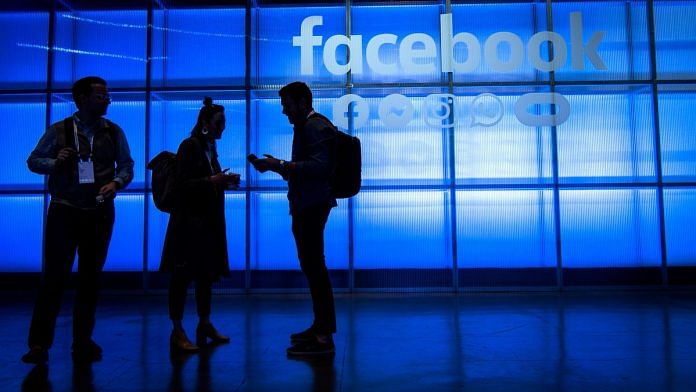When Victor Frankenstein created his monster, he had no idea what it would be capable of, and died before he got the chance to fix its behaviour. Facebook is like Frankenstein’s monster, and it’s definitely broken — but I’m not sure I trust CEO Mark Zuckerberg to “fix” anything.
Instead of addressing the social networking giant’s issues, Zuckerberg announced plans on Thursday to rebrand Facebook Inc. to Meta Platforms Inc., or Meta. The Facebook app will keep its name, as will WhatsApp, Instagram and Messenger. The company’s corporate structure also won’t change.
So if everything is to stay the same, why the facelift?
Also read: Leaked photo reveals Meta planned competitor to Apple Watch
A rose by any other name
Meta is short for metaverse, a sci-fi term for an immersive digital reality. The Matrix, for example, is a metaverse. Tech companies like Microsoft and gaming companies like Epic Games, which made Fortnite, too have plans to build their own metaverses. It’s the stuff of dystopian dreams.
Thursday’s announcement has prompted speculation that Zuckerberg is trying to divert attention away from the many legal battles Facebook is embroiled in. Introducing Meta can shift the conversation to ‘what a metaverse is’, but we must not forget the one that’s ongoing — around how damaging Facebook’s operations are. No immersive digital reality should allow Zuckerberg to escape from the reality of allegations against his company.
I’m here to remind you that Facebook has been fending off complaints about everything — from privacy and how it handles misinformation to how it encourages a toxic environment for users. If Facebook — sorry, Meta — was looking for improvements to make, Wikipedia has a whole laundry list of pending issues to address.
The Facebook Papers, recently disclosed by whistleblower Frances Haugen, reveal that the company is fully aware of the damage it is doing. They show that Facebook knows Indian users post hateful, gory, anti-Muslim content that incites violence, and that Instagram is a dangerous place for teens’ mental health. We also know that Facebook has exposed users’ data to firms like Cambridge Analytica.
In India, Facebook refused to mark bigoted comments made by BJP leaders as hate speech despite publicly committing to curbing hate speech in the United States. In Vietnam, Zuckerberg personally intervened to make sure that Facebook would comply with a draconian law to moderate “anti-state” content. It’s no surprise that Facebook has a tier system ranking countries that need the most attention.
Following the Facebook Papers, India’s Union Ministry of Electronics and IT asked for details on Facebook’s algorithm, and for information on how it safeguards its users. Junior IT Minister Rajeev Chandrasekhar also asked the Menlo Park, California-based company to address the bias in algorithms. There has been no response yet.
Evidence suggests that Zuckerberg has been thinking about building a metaverse for a while. The Chan Zuckerberg Initiative, a philanthropic organisation run by Zuckerberg and his wife Priscilla Chan, bought a company called Meta in 2017 and used their domain name, meta.org. It’s highly unlikely that Meta will be launched any time soon — we just don’t have technology that’s good enough yet. It might take years, even decades to build.
The metaverse is still very much an idea for the future, and Facebook is trying to use it to put out a forest fire in the present.
Also read: Goodbye, Facebook; Hello, Meta — Why name change reflects poor judgement by Zuckerberg
Trying to teach an old dog new tricks
Let’s not forget that Zuckerberg started out by hacking Harvard’s directory and stealing students’ photo IDs to compare and rate their attractiveness. Facebook is an evolved version of this original, crude site. At the time, after taking the site down, Zuckerberg had said his biggest concern was hurting people’s feelings, and not necessarily violating their privacy. On Thursday, Zuckerberg said privacy and safety will be baked into Meta from the beginning.
But that would be like trying to teach an old dog new tricks.
Without actually changing the way Facebook’s algorithms interact with the content users post, Facebook will never become a safe or private space. Facebook’s algorithms are designed to keep users engaged on its platform, and remains indiscriminate about the content it uses to do so.
Machine learning often leads to cases of algorithmic bias. More often than not, algorithms are designed by people at the top of the privilege ladder, which alienates minority populations. The humans behind the code have the capability to fix the platform, so why aren’t they?
Rebranding is a hasty attempt at a facelift, but for Facebook, it is more like an identity crisis, which could lead to an existential one. The social network is no more popular among younger people, and with its ambitious plans to rebrand, it will alienate its core user base. Facebook is probably the only social media platform that older people are comfortable using — but this is also the demographic they are least interested in.
An aging user base is not ideal for a platform that wants its consumers to graduate into a multiverse, and poses an existential threat to the company. Let’s see if Meta is able to launch its multiverse before it loses out on an entire generation of youth.
Until then, the only thing I’m looking forward to after the Meta announcement are the memes. Write on my ‘wall’ when Zuckerberg actually changes Facebook’s algorithms.
Views are personal.
(Edited by Anurag Chaubey)



